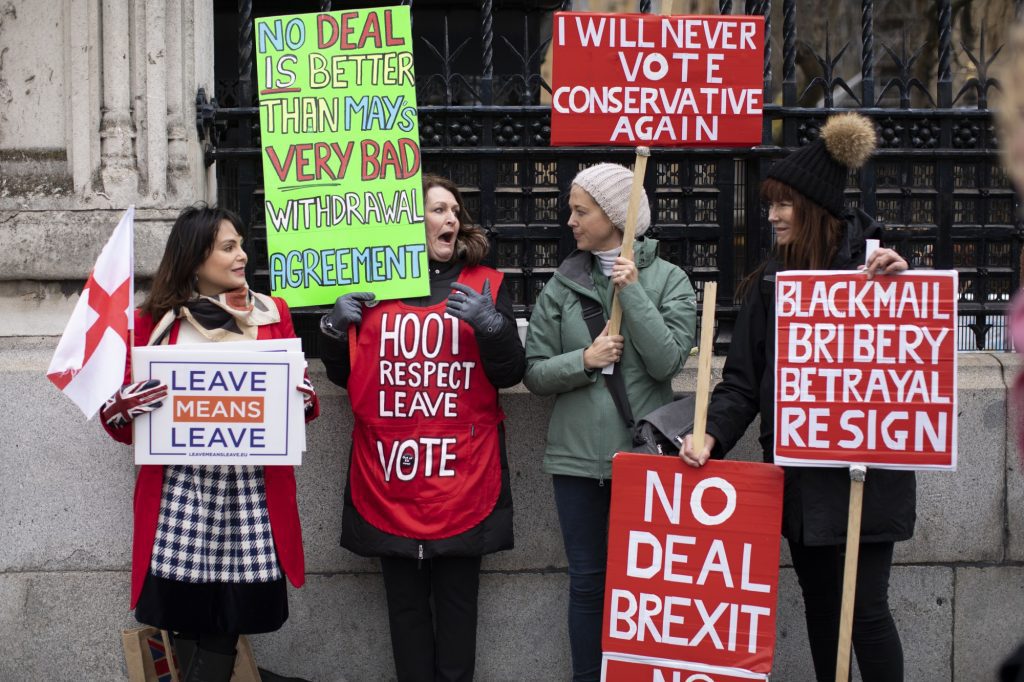Travel Plunges Deeper Into Uncertainty as UK Still Without Brexit Plan

Skift Take
The UK is still stuck in Brexit limbo.
On Tuesday night, MPs for the second time rejected the agreement Prime Minister Theresa May struck with European leaders last November (this time with some minor tweaks.)
And while politicians have chosen to signal their dislike for May's Brexit plan, there's still no coherent alternative, meaning that the UK could conceivably crash out on March 29 with no-deal, a turn of events many view as having serious economic and political consequences.
May could conceivably still get her deal through, or she might ask for an extension. At this stage everything is in play.
“Uncertainty is bad for business, it’s bad for consumers. What we’re seeing in the UK is that consumer confidence is tending down, business confidence is trending down and ultimately that’s having an impact on our GDP,” said Caroline Bremner, head of travel research at Euromonitor International.
Bremner was speaking in a Brexit discussion at the recent ITB Berlin travel conference. Alongside her was Christoph Debus CEO of Thomas Cook Airlines who said it was “unacceptable” that businesses still didn’t know what would happen at the end of March.
“I’m in daily contact with all the European governments, which are relevant for me. I sense a tremendous willingness from the officials and civil servants to strike a deal,” he said.
That willingness has not yet been matched by decisive action on the UK’s part with politicians still arguing among themselves about what kind of Brexit the UK should have.
The impending deadline has forced the government to put in place contingencies should the UK leave without a deal, some of these such as those relating to employment and air travel will provide reassurance to the travel and tourism industry.
Aircraft will continue to fly and immigration will continue largely as it is now at least until the end of 2020.
“There’s been a lot of no deal planning, which means we’ve got some certainty and assurances that even in a no-deal scenario we will not fall off a cliff and the worst will not happen,” said Kate Nicholls, CEO of lobbying group UKHospitality, at the recent International Hotel Investment Forum in Berlin.
Some issues still remain up in the air. Nobody knows how far the pound will fall in the event of a no-deal Brexit. If that were to happen UK consumers could expect prices to rise because of inflation brought about by currency depreciation.
A Hospitality Brexiteer
Most travel and leisure businesses backed "remain" in the 2016 vote and since then have watched in anguish at the way the political situation has deteriorated.
Few backed Brexit but one person who has become a champion of the cause is hotelier Sir Rocco Forte. In a recent interview with Skift he said businesses would still be able to hire foreign staff (a particular concern for the hospitality industry) and the European Union was "doing away with a nation-state."
"There’s a large element of people in the UK now trying to frustrate Brexit and they’re using every means at their disposal to scaremonger and so on and make things sound worse than they are," he said.
The UK won't have to wait too long to find out who's right.
What Happens Next?
While the political impasse continues to frustrate both businesses and the public, time is running out, and Parliament will have to decided what it wants to do.
In the meantime, MPs are continuing to vote on matters to do with Brexit. They voted to rule out leaving without a deal — although they technically can't do this unless they revoke article 50 or agree to Prime Minister May's deal — and have voted in favor of a delay. It now seems likely that May is likely to bring her deal back to Parliament for another vote in the near future. Whatever happens an extension past March 29 now seems on the cards but will EU leaders grant one?
Updated with further details on delay vote.




